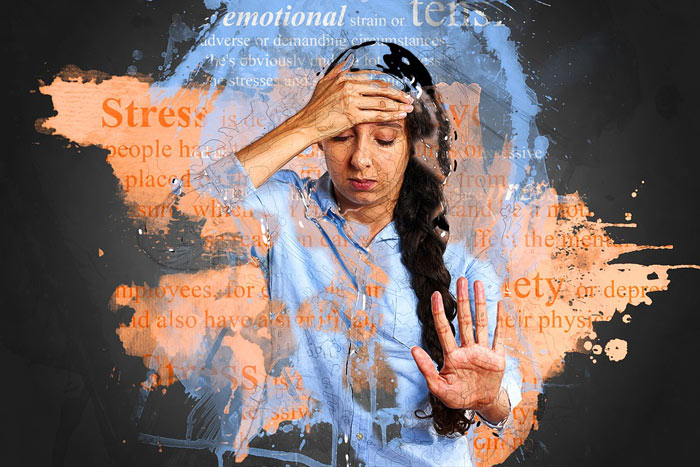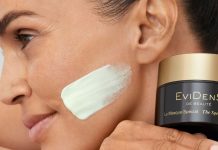In one of his lectures, the author of the theory of stress, Professor Hans Selye said that the concept of “stress” has much in common with the concept of “sin”- everyone thinks they are talking about the same thing, but everyone has something very special in their mind.

Indeed, the word “stress” often denotes a variety of conditions and situations. The expressions “I am terribly stressed today”, “I am tired of stresses”, “My life is a continuous stress” have firmly entered our life…
How does stress affect the body and health?
Back in 1936, young Canadian scientist Hans Selye published a short (only 37 lines) note in the well-known scientific NATURE journal, which stated that although there are many damaging factors influencing the body, the responses to all these effects are very similar. Thus, the doctrine about stress and the adaptation syndrome was born.
Stress is a state of tension experienced by the body as a result of extreme (strong and/or prolonged) exposure.
The adaptation syndrome is the term denoting a set of protective and adaptive reactions that help the body overcome stress and its harmful consequences.
If the impact of the damaging factor (stressor) on the body was not strong or prolonged, everything gradually comes back to its normal condition. The organs and systems return to the balanced state of the internal environment. These are the usual consequences of most stimuli.
Another situation is an excessively strong and/or prolonged impact.
It can be a trauma or illness, an emotional shock or grief, constant negative factors at work and at home. In this case, resistance develops, and the body learns to bear the state of stress and gets used to it. There is a danger to reach the stage of exhaustion and decompensation with time.
Long and intense stress is the main cause of the deterioration of skin condition and appearance, accelerated and premature aging of the body.
What happens to the skin during stress?
 Constant tension causes facial muscle cramps; elastic fibers of the skin stretch more than necessary, and the skin loses its elasticity.
Constant tension causes facial muscle cramps; elastic fibers of the skin stretch more than necessary, and the skin loses its elasticity.
During stress, our body releases cortisol and adrenaline, which help realize the main effect on the skin.
Cortisol causes an increase in blood sugar, and its excess stimulates the processes that alter the properties of collagen. Modified collagen molecules change the properties of the skin – it becomes rigid, and the number of wrinkles increases.
Under the influence of cortisol, the natural production of hyaluronic acid decreases, which serves as a natural skin moisturizer. Moreover, cortisol compromises the effectiveness of the natural skin barrier, which allows moisture to evaporate even more intensively. The reduction of barrier functions is accompanied by an increased sensitivity (including photosensitivity) of the skin and an increase in its dryness. This creates the conditions for the infection and inflammation of the skin.
Cortisol inhibits the division and growth of fibroblasts, which is accompanied by the violation of repair processes and slowing down the formation of collagen fibers. The consequence is skin vulnerability, prolonged and improper healing of lesions, thinning of the skin, stretch marks, and aging.
Excess cortisol also stimulates the synthesis of fats, which leads to the accumulation of fat in the organs and increases the production of sebum.
Adrenaline also acts against the skin. Its action causes the spasm of skin capillaries. Moreover, the blood flow decreases, which deprives the skin of vital nutrients and oxygen and generally leads to a pale yellow face. In some people, the influence of stress and vasoconstriction on the neighboring skin areas cause their paretic enlargement, which is manifested in red, stagnant spots on the skin.
In a state of stress, the intestine suffers from large amounts of histamine produced. They are the cause of the appearance of the rash, small pimples, and an increase in the sensitivity of skin to various irritants.
Why does the skin respond to stress?
 Unfortunately, in emergency situations, the skin belongs to the “secondary” organs. It is believed that during stress the body takes more than a third of all nutrients from the skin and sends them to more important organs. As a result, the skin lacks nutrients and energy, its protective systems weaken and become less able to withstand adverse effects.
Unfortunately, in emergency situations, the skin belongs to the “secondary” organs. It is believed that during stress the body takes more than a third of all nutrients from the skin and sends them to more important organs. As a result, the skin lacks nutrients and energy, its protective systems weaken and become less able to withstand adverse effects.
Psychological consequences of stress and its influence on the skin
Except for the physiological component, this problem has another side – the psychological one. If a woman is nervous, sleeps little and eats poorly, she stops taking care of herself and often neglects cosmetic procedures and exercises for the face and body, which further exacerbates the skin condition.
Everyone knows that in order to overcome stress, it is necessary to eliminate its cause. The only pity is that it is not always possible. Much more often, one has to live in the conditions of chronic and acute stress.
Do not give up!
 We can eliminate or reduce the impact of physical and chemical stressors on the skin:
We can eliminate or reduce the impact of physical and chemical stressors on the skin:
- protection against excessive insolation;
- effective moisturizing and nourishing the skin with the use of ecological and organic cosmetics;
- elimination of contact with tobacco smoke and alcohol;
- creation of a favorable microclimate in the workplace (the use of ionizers, purifiers, and humidifiers, dosed contact with the computer and radiation sources);
- sufficient intake of plain water;
- food with organic products without preservatives, dyes, taste enhancers and other artificial food additives, but with fresh fruit and greenery predominant in the diet;
- the use of environmentally friendly household chemicals.
Yet, one of the most important groups of stressors for a person are negative emotions!
Dissatisfaction with their lives, constant duties, fear for themselves and for their loved ones, trouble at work, bad mood, and depression are just a few emotional stressors.
It is important to remember that the perception of stress is purely individual. It’s like a roller coaster ride, where some thrill-seekers enjoy every fall and turn, some cling to the handrails and dream to be released from this hell, and others are somewhere in the middle.
Psychological stress is not an external event. It deals with perception, but we can change it.











